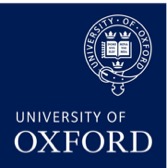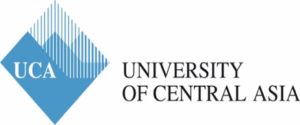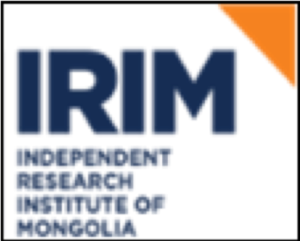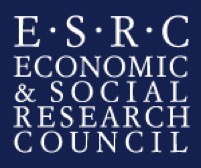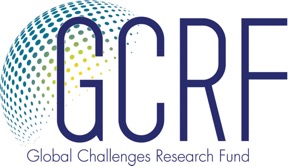Power to the People
By Delgermaa Boldbaatar
Today is New Year’s Eve. I am writing this note to recap and express gratitude to this year’s moments. This year I had committed to myself to volunteer to do social work to help local nomadic families outside of my daily work. Initially my idea was to donate some books to the countryside schools for the children. I thought this would empowere them and connect them to the world.
Coincidently, one day Dr Ariell called me, and we were catching-up and discussing our projects and plans. She told me that the Oxford team has developed an information dissemination tool for offline communities who live in the countryside close to the mining operation within the Gobi Framework project. The main objectives were to reduce conflict between stakeholders in the mining sector, to empower citizens to monitor government and companies, and to improve government and company accountability. In that moment, I thought that definitely I can contribute and volunteer to develop contents using my knowledge since I’ve been working over a decade to promote transparency and good governance in the mining sector of Mongolia. We agreed to pilot a project over the summer.

Pilot of the app in Dalanjargalan soum with local government officials
With my recent role at the International Finance Corporation that aims to promote effective use of mining data, I observe many communities that are living patiently although they lack information. One of the main reasons is their limited capacity to navigate necessary data, analyze the key insights and ask the right questions. What I knew was working with data and making it understandable and accessible to the public in their language is tough task and requires a mixture of talents and active participation of stakeholders through the value chain.
From May to September 2021, we kicked off a pilot project in Dalanjargalan soum (county) to empower local communities with accessible information through their mobile phones. The reason why we chose this soum was twofold. First, it’s the second highest soum out of hundreds of soums by its total number of mining licenses. To date, 100 licenses are active in Dalanjargalan. Second, it has received attention in social media and some central media outlets due to its protest against mining companies. Reporters and other researchers are shining a light on its high vulnerability in terms of the environment and herders’ heath concerns due to the thick dust clouds. I coordinated a team of 6 people and worked over the summer intensely. The main partnering organization was Steps Without Boarders NGO and one journalist who works as a EITI Communications Officer, and two representatives from the local communities. We named a project as “Mergen Boodii” in Mongolian which means “A Wise Hedgehog”. Mongolians usually call someone who is trusted and intelligent in their community as Mergen Boodii.
To save time, we decided to use my recent research datasets for storytelling, which was a cleaned and structured data source. My research which examined the improved data usability for problem solving in the case of Dalanjargalan and was published as a chapter in the book The Impact of Mining Lifecycles in Mongolia and Kyrgyzstan: Political, Social, Environmental and Cultural Contexts. Even though the data was ready; we had some procedural and organizational challenges due to Covid-19 restrictions. I must note that in order to produce contents that empower communities, the team worked just like a small media agency. We had morning calls in every two days and worked extensively to simplify texts and numbers, create data visualizations, and reach out to local representatives to collect photos and additional information. We prioritized the information demanded by having Zoom calls with the communities, organizing field trips and so forth. All local coordination would not be successful without Steps Without Borders’ support. Here I thank Mrs. Bayarsaikhan for her strong dedication and connection with the soum governors on behalf of many civil society organizations.
The outcomes and lessons learnt
Within a short period of time, we could upload all active mining project information, legal background and many other forms of content. The mining project information was very useful even for local public servants such as land manager, bagh (subdistrict) governor etc.
Reliable information was not accessible to local communities, and they think that usually mining companies come to the communities only when needed like a “surprise”; most of information they receive about the mining was negative and the current state of information was like a “fairy tale” to the people since they receive it via word of mouth. Moreover, local government is likely to be inactive.

Testing app with herders in Dalanjargalan county
The communities wanted to have more information about the mining license allocation before the licenses were issued. In other words, the information is useful prior to the decision making not afterwards. Information considered valuable includes plans for environmental rehabilitation, the nature of mining companies’ contributions to the soum, CSR, contact addresses, mine shareholders or owners, land management and resettlement, compensation and etc.

Delgermaa discussing the app with local government officials in Dalanjargalan soum
The main lessons learnt was that due to the nomadic lifestyle and culture, the communities were easygoing and patient although they lack information. Not all herders had smart phones or good internet connectivity in order to read the content in a timely manner. Companies’ engagement or participation was slow.
On a final note, although a pilot project was successful, the team were worried about how to ensure the sustainability of information dissemination, how to build the local institutions, how to transfer skills to local info-mediaries and how to ensure the financial sustainability of the app.
Based on my experience in last few years, my belief is this kind of project should be considered a form of social entrepreneurship that gives more opportunity or flexibility on their maturity model to ensure the sustainability. For instance, Mergen boodii app may be sustainable in early stage of the development with support from philanthropic organizations or with donor subsidies. However, it should work to achieve further sustainability from the fourth or fifth year based on a model which combines free trials and some paid subscriptions. With this belief and concept, I initiated a data-driven community called the “Mongolian Data Club” to connect the talents and skills of people to help others that feel unempowered or live in a situation where their right is under threat.
Data is a new oil. However, independent, and strong institutions and communities is the main tool to dig that oil and make it useful for public good.
Thank you for everyone who supported this concept and for being with us to nurture our hope.
Happy New Year!
2021.12.31
